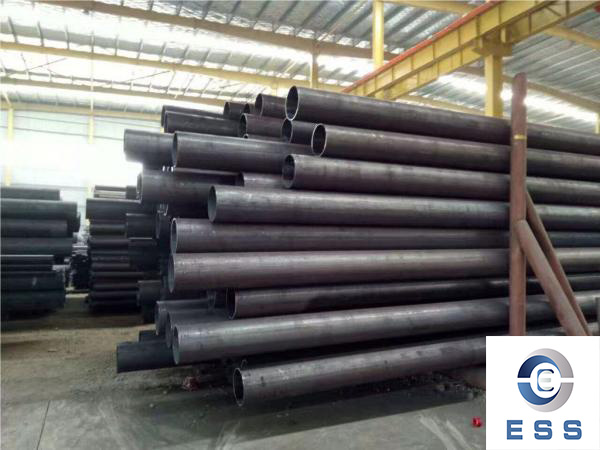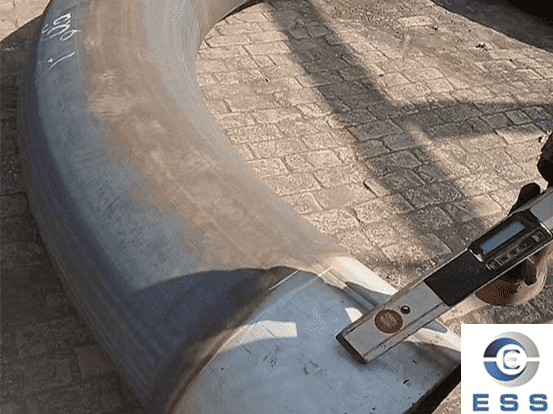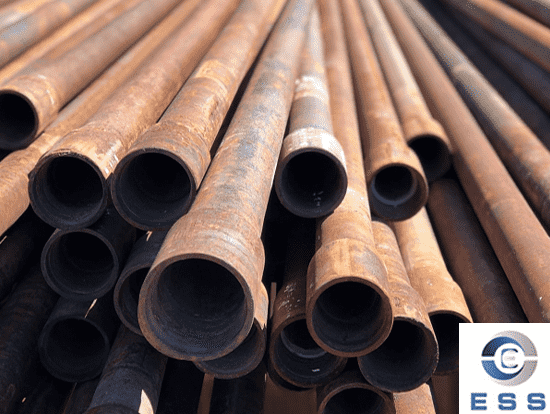Why do carbon steel pipe rust easily?
Carbon steel is a type of alloy steel. Because its composition contains iron, carbon and other components, its surface is extremely vulnerable to oxygen corrosion in air, water, moisture and other environments. When the protective layer on the surface of carbon steel is damaged or some gaps appear on the surface, it can easily absorb moisture and oxygen in the environment and form a chemical substance called "rust", causing the steel to rust.

1. If the storage environment is relatively dry, the rust will be lighter.
2. If stored in an environment with relatively high humidity, the rust will be heavier.
3. If carbon steel is coated with anti-rust oil, carbon steel will not rust easily.
4. According to the purpose, carbon steel can be divided into three types: carbon structural steel, carbon tool steel and free-cutting structural steel. Carbon structural steel is divided into engineering construction steel and mechanical manufacturing structural steel.
What are the causes of carbon steel pipes rusting?
1. Media causing product corrosion: Humid air, hand sweat or dirt in contact with the product, water, acid, alkali, salt and chemical gases remaining on the metal surface may cause metal corrosion.
2. Corrosion resistance of metals: Metals that are prone to rust include pig iron, carbon steel, and structural alloy steel. Stainless steel, high-temperature alloys, and titanium alloys will rust in special environments.
3. Parts prone to rust: parts prone to contact, adhesion, and accumulation of corrosive substances, including grooves, seams, holes, edges, joint surfaces, hand contact surfaces, parking surfaces, etc., or areas with rough or newly processed surfaces parts. Surface, sandblasted polished surface and other places that are prone to rust.
4. Corrosive environment: Generally speaking, processing workshops such as pickling, heat treatment, electroplating, welding, painting, and electrolysis are more prone to corrosion than mechanical processing workshops because there are a large amount of corrosive media in these workshops.
Anti-corrosion measures for carbon steel pipes:
In order to prevent this situation from happening to carbon steel raw materials, corresponding measures need to be taken for protection. The following are some commonly used anti-corrosion measures:
1. Prevent rust through passivation treatment. Passivation treatment forms a protective oxide layer on the surface of carbon steel to prevent further corrosion by the environment.
2. Carry out surface treatment such as spraying on the carbon steel surface to improve surface hardness and durability.
3. In the production process, stainless steel, aluminum, plastic and other materials are used instead to reduce the corrosion rate of carbon steel.
4. The use of high-density grease and preservatives can prevent oxygen from entering the carbon steel surface, thereby reducing the occurrence of oxidation reactions.
To sum up, in response to the problem of carbon steel rusting, we can take a variety of measures to protect it, reduce the corrosion rate of carbon steel, and extend its service life.
Warm reminder: Carbon steel pipes can be divided into seamless steel pipes and welded steel pipes according to production methods. Seamless steel pipes are made of hot rolling or cold drawing and have high strength and sealing properties. Welded steel pipes are made by rolling steel plates or steel strips into a cylinder, and then connecting the welds using resistance welding, submerged arc welding and other methods.













 Eastern Steel Manufacturing Co.,Ltd not only improve product production and sales services, but also provide additional value-added services. As long as you need, we can complete your specific needs together.
Eastern Steel Manufacturing Co.,Ltd not only improve product production and sales services, but also provide additional value-added services. As long as you need, we can complete your specific needs together.










